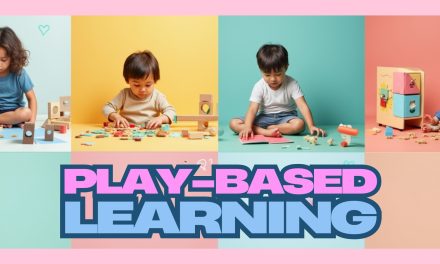Let’s face it—getting kids to sit still for more than five minutes can feel like a superpower in itself. But what if that five minutes could transform into something magical? Encouraging a love of reading isn’t just about getting kids to turn pages—it’s about unlocking a world of benefits that last a lifetime. From boosting their language skills to expanding their creativity, the power of reading is a game-changer.
Imagine your child building their vocabulary while simultaneously embarking on adventures through space, time, and fantastical realms—all from the comfort of their own bedroom. Sounds like a win-win, right?
Let’s dive into why fostering a love of reading will do wonders for your child’s growth. We’ll examine how it’ll prepare them for a future full of curiosity, empathy, and creativity.
Improves Language and Communication Skills
Regular reading fosters the improvement of language and communication skills in children. It expands their vocabulary and enhances their overall language development.
By engaging with a wide variety of books, young readers can encounter new words, phrases, and expressions. All of these enrich their linguistic abilities. Exposure to different writing styles and genres allows them to grasp the nuances of language usage. They also develop a deeper understanding of effective communication.
The act of reading itself helps in honing their language proficiency. It provides practical demonstrations of proper grammar, syntax, and sentence structure, leading to improved writing and verbal skills.
Expands Knowledge and Vocabulary
Engaging in reading activities expands the knowledge and vocabulary of kids. It exposes them to diverse concepts, ideas, and terminology, enriching their cognitive abilities.
This allows them to explore new worlds, understand different cultures, and develop empathy through the perspectives of characters in the stories. Exposure to varied literature enhances their comprehension skills. This enables them to grasp complex ideas and think critically.
This broadened knowledge base and improved vocabulary also aid in better academic performance and effective communication. Such benefits lay a strong foundation for their future success.
Develops Critical Thinking Skills
Reading catalyzes the development of critical thinking skills in children. It achieves this by encouraging them to analyze, evaluate, and interpret information from diverse literary sources. Exposure to literature facilitates the exploration of different viewpoints, allowing young minds to understand the complexities of human emotions and societal dynamics.
Through engaging with various literary genres, individuals can develop their capacity for empathy, perspective-taking, and problem-solving. The process of interpreting symbolisms and underlying themes in literature also fosters the ability to think critically and independently. This lays a strong foundation for lifelong analytical skills.
Enhances Imagination and Creativity
Regular engagement with books enhances children’s imagination and creativity. It exposes them to diverse narratives, scenarios, and characters that spark their creative faculties.
As children immerse themselves in various stories and literature, they are transported to new worlds and settings. This allows them to visualize, empathize, and problem-solve.
Children can explore emotions, cultures, and perspectives through literature. And ultimately, this broadens their understanding of the world and nurtures their ability to think critically and creatively.
In fact, the imaginative stimulation provided by books can lead children to express themselves more freely and confidently.
Fosters Empathy and Emotional Intelligence
Reading plays a pivotal role in fostering empathy and emotional intelligence in kids. This arises from the fact that they’re able to connect with diverse characters and empathize with their experiences and emotions.
By immersing themselves in the lives of fictional characters and exploring their struggles and triumphs, children develop a heightened sensitivity towards the feelings and perspectives of others. Essentially, literature helps them witness the power of empathy in action. It allows them to understand the complexities of human emotions and experiences.
As they navigate through different narratives, children learn to appreciate the diversity of human emotions. They also learn how to cultivate a deep sense of compassion for those around them.
Promotes Bonding and Quality Time
Engaging in family reading time fosters bonding and quality interactions between parents and children. It creates memorable moments centered around shared literary experiences.
Simply put, it provides a valuable opportunity for parents to connect with their children, share stories, and instill a love for reading from an early age. Through this shared activity, family members can do the following:
- Explore new worlds
- Learn valuable lessons
- Engage in meaningful discussions
This deepens their understanding of each other, thus, helping them form lasting connections. Family reading time enhances literacy skills and strengthens emotional bonds. It fosters a sense of togetherness and leads to cherished memories.
Conclusion
Fostering a love of reading in kids is an investment in their future. It shapes their language skills, sparks creativity, and builds empathy. With each page turned, they unlock new worlds and endless possibilities. The benefits extend far beyond the page, shaping well-rounded, curious, and compassionate individuals.
Stay tuned for more tips on nurturing young readers and shaping a brighter future for your child. Visit Marvelus Kids for more insights and ideas to inspire the love of reading today!









